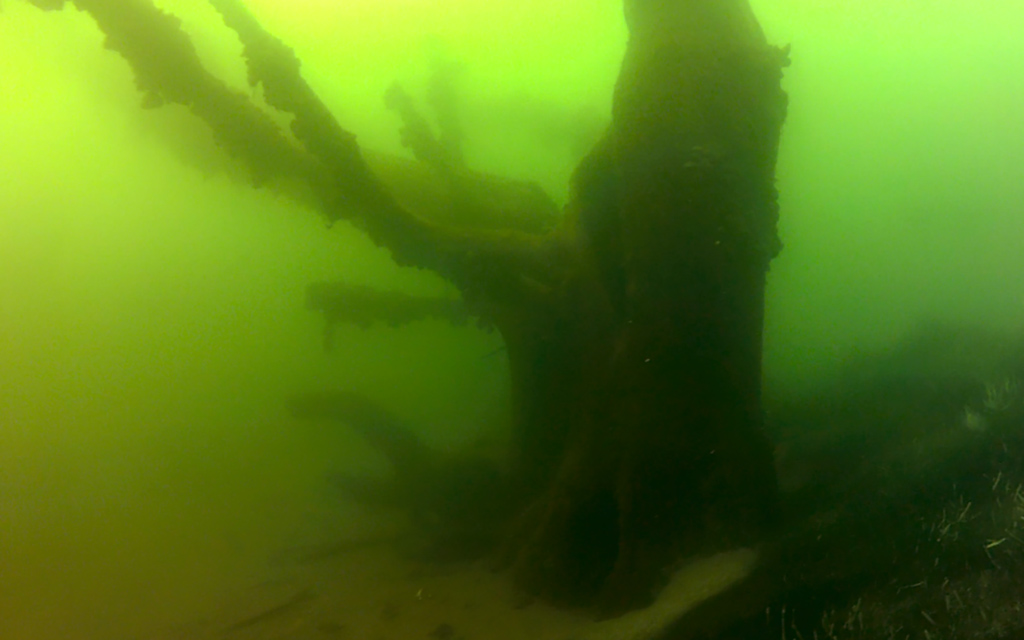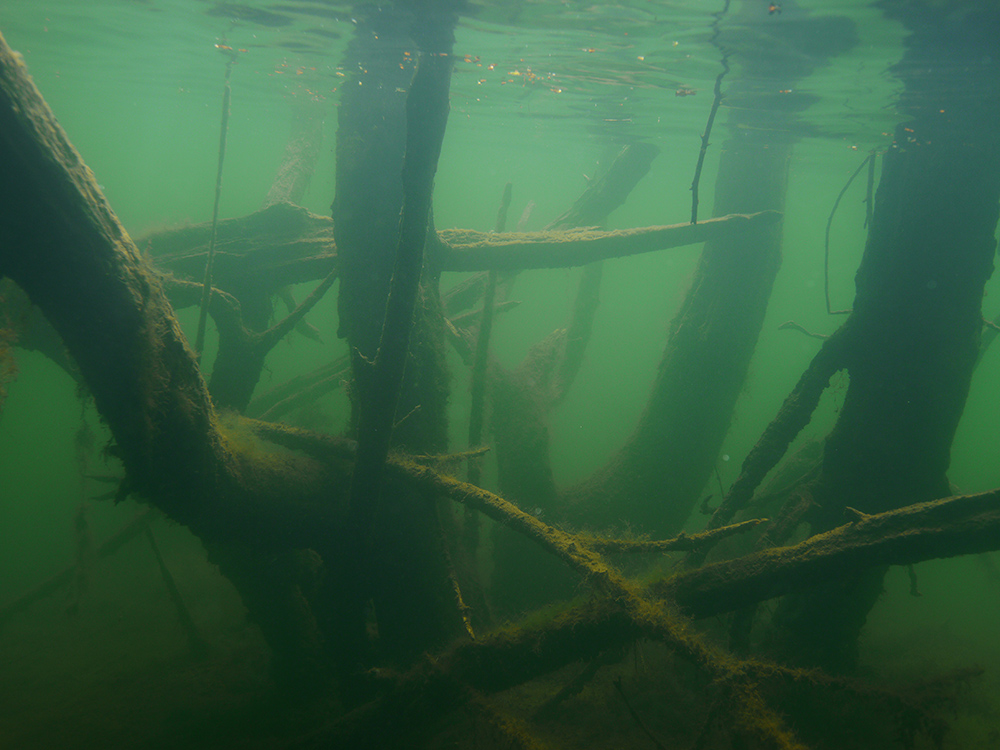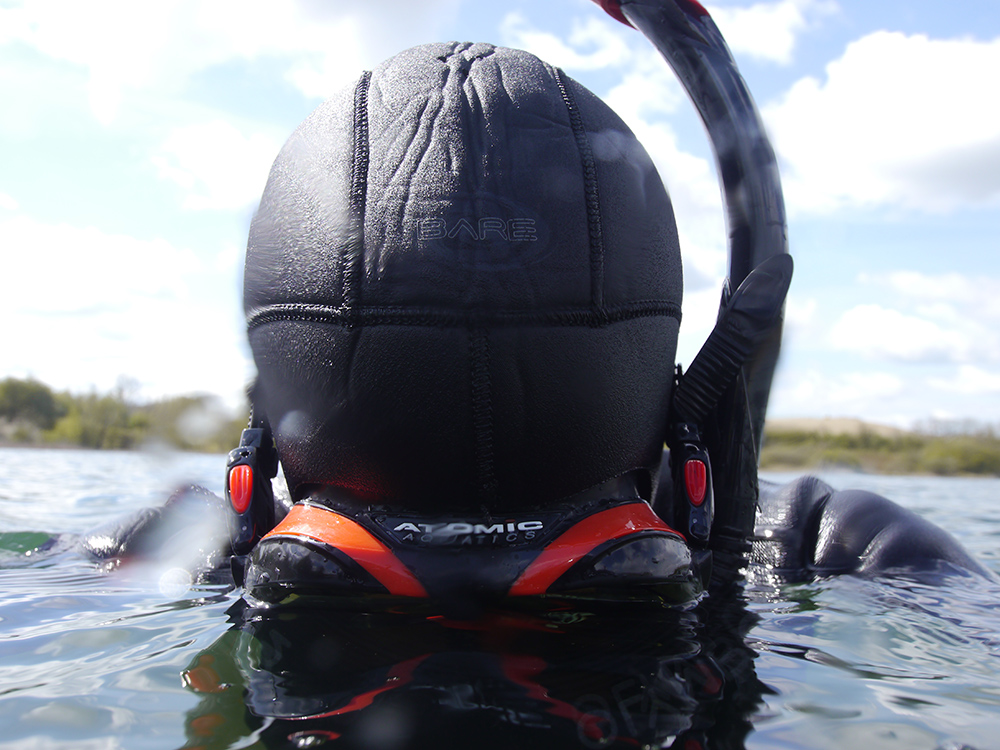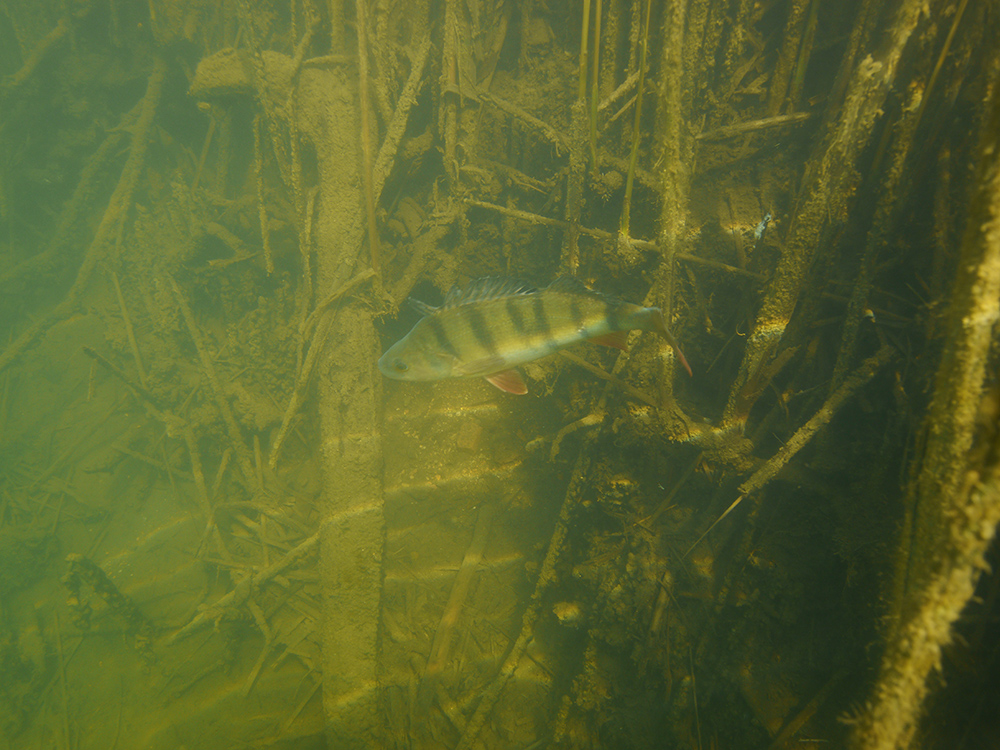
Andy Torbet compares a rediscovered wellness vogue to the experience of snorkelling against a backdrop of aquatic plant life.
There is an ancient Japanese practice which has gained notoriety and popularity in recent years – Shinrin Yoku, or tree bathing. The practice, also known as Forest Bathing consists, basically, of relaxing under a tree. For me, sitting under trees seems like something humans have been doing since they first climbed down from one. Although the Japanese have a formal name for this therapeutic pastime they have also carried out medical studies, supported by others internationally, that show real, trackable data from tree-bathers. This data shows physical benefits such as increased immune response, decrease in stress-hormones and more rapid recovery from illness.

I had planned to write this month’s column about a trip to a small, secluded lake near my home. I had planned to investigate the un-dived, shallow waters and report back on my discoveries. As it was, the lake did not furnish me with the Maldivian visibility, nor temperature despite the rather un-British blue skies and sun. And as I finned around the edge, my snorkel clipping the overhanging branch of trees forming their own islands in the waters, it struck me that we, as snorkellers and divers, may have our own branch of Shinrin Yoku.
Above me were the trees, while below there was a little forest of freshwater plants, stretching for the sunlight at the surface, just like their terrestrial cousins.

I also wondered, since there was little else to see underwater, what else we encounter as visitors to the sub-aquatic world, would be considered a ‘tree’ for the purposes of ‘bathing’ next to it. I have, in past columns, described seagrass as the rainforests of the sea. And, because I never met a simile I liked that I didn’t over-use, I am fairly confident I’ve said the exact same thing about kelp forests. So, perhaps we’ve all been ‘tree bathing’, all this time.
The benefits may not stop there. The pale, cloudy green of the water became hypnotic and I grew keenly aware of the sound of breathing through my snorkel. Other areas of self-therapy that have become popular recently are Breath Work and Mindfulness. I’m not a formal practitioner of either so cannot judge their effectiveness; all the same, divers and snorkellers have always been very aware of our breathing. Perhaps it’s because the management of our air is imperative to our survival or perhaps because the sound makes us more attentive to its presence.

Therapy comes in many forms: connecting with people, community activities, the outdoors and nature, fresh air and proximity to water. It’s all positive stuff, as is exercise, the dopamine lift of having fun, breathing, and now hanging out around plants. By my reckoning, diving or snorkelling in their various forms tick all these boxes. Little wonder snorkelling makes us feel better.
Article ‘A Forest’ by Andy Torbet first published in SCUBA magazine, Issue 146 Jul/Aug 2024. Images in this online version have been substituted from the original images in SCUBA magazine due to usage rights.
Go snorkelling!
Learn more on snorkelling with BSAC. Looking to introduce snorkelling into your club? Find out more at bsac.com/snorkellinginstructor

 Author: Andy Torbet | Posted 25 Jul 2024
Author: Andy Torbet | Posted 25 Jul 2024



